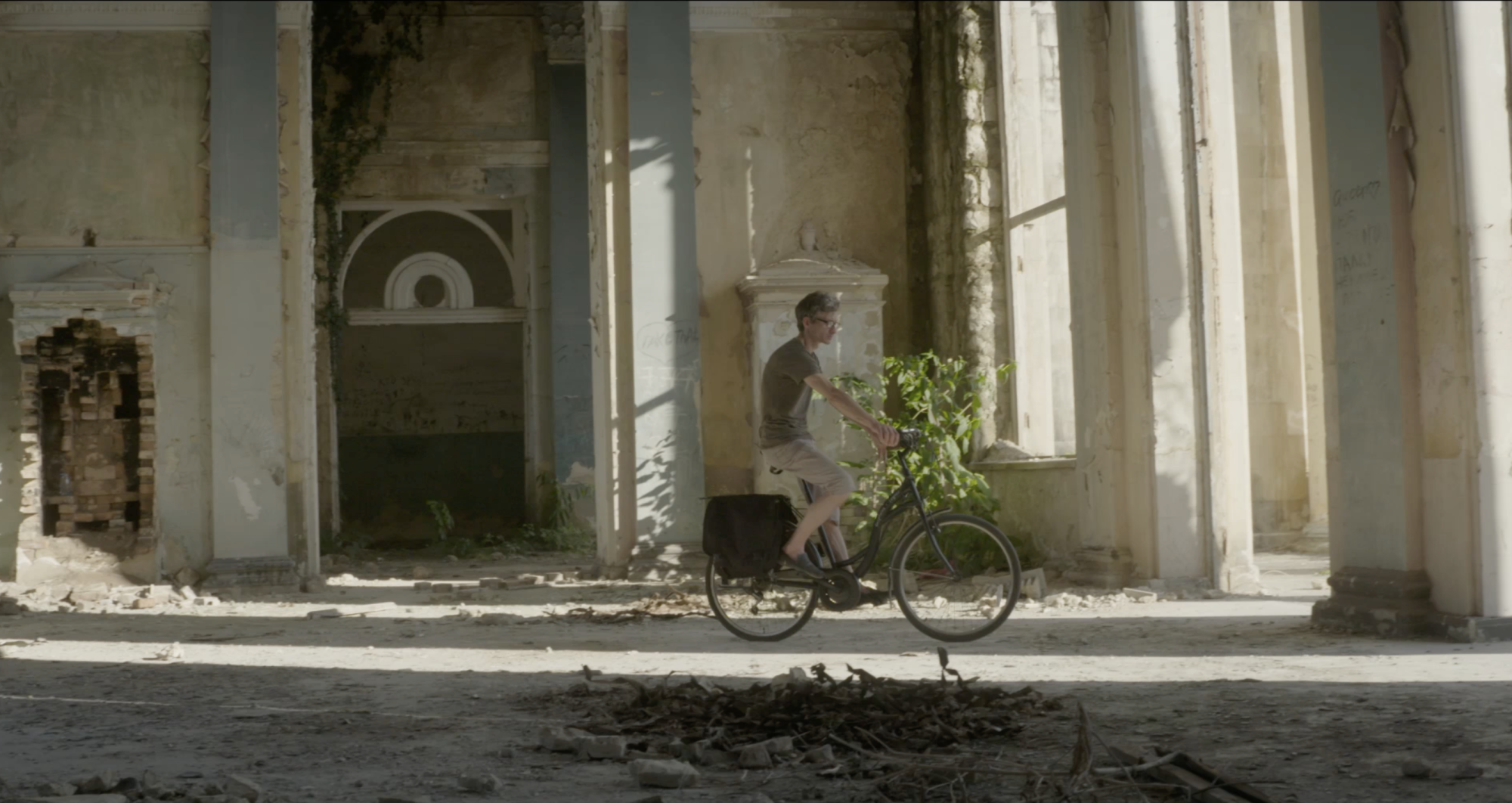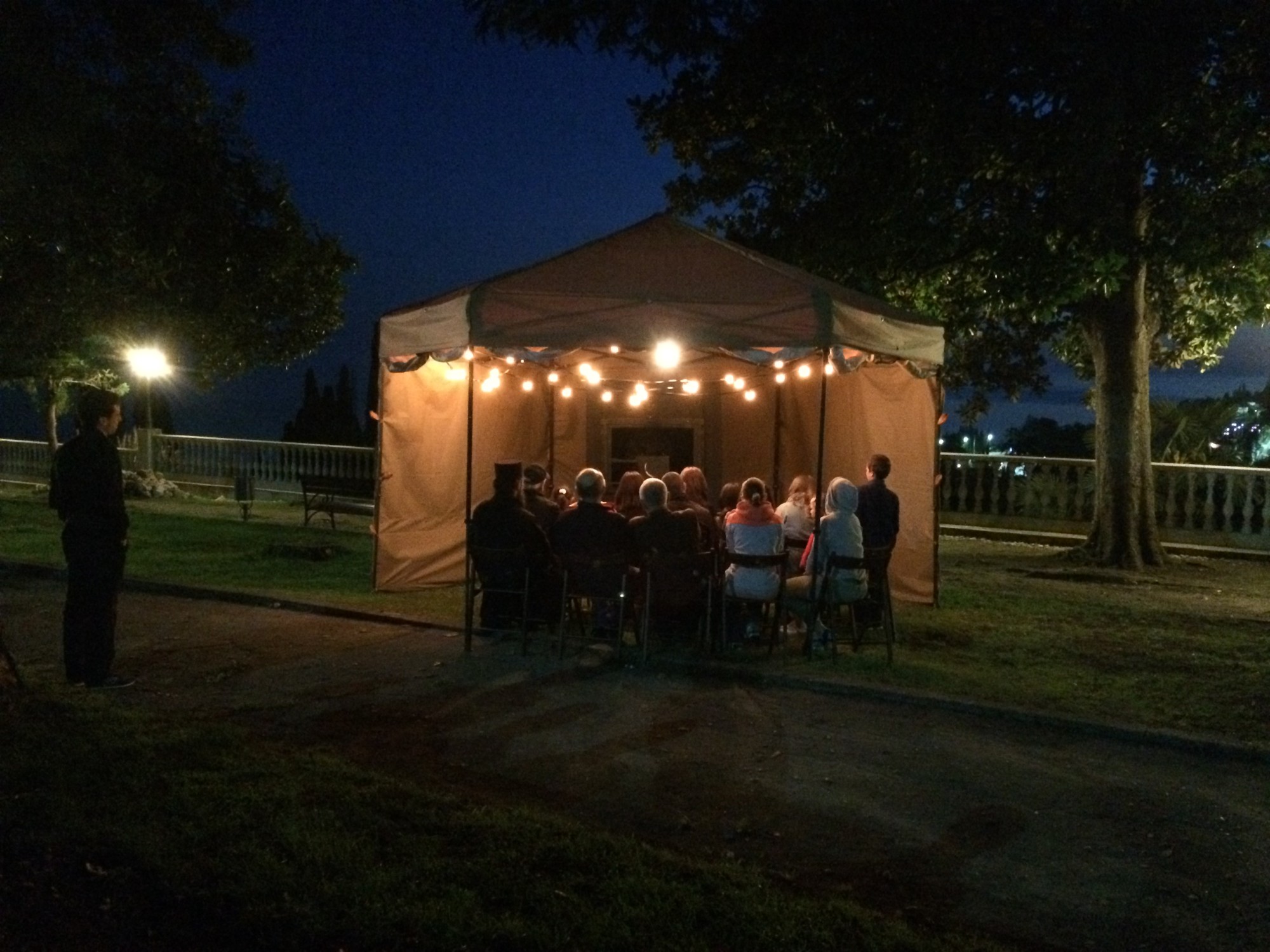‘Here, We Are Talking Freely’
What makes a place your country? What makes a home? In Little Man, Time and the Troubadour, director Ineke Smits searches for answers in Abkhazia.
What makes a place your country? What makes a home? In Little Man, Time and the Troubadour, director Ineke Smits searches for answers in Abkhazia.

What exactly is it that we are looking at? The surreal opening shot of Little Man, Time and the Troubadour calmly glides past a scarred building. Is it a sinister maquette? A gruesome fantasy of a war-torn building? Or could this be real? The tilt-shift technique used in the shot, with razor sharp bullet holes in the center of the image while rendering parts of the surrounding concrete frame blurred, adds to the intrigue.
This is Eshera, a devastated Soviet Olympics training facility in Abkhazia. Like so many buildings in the small and disputed Caucasian Republic, it is frozen in time. The ruined railway station of Kelasuri, where no train has stopped in thirty years. The abandoned factories of Tkvarcheli, once a thriving town. The crumbling mosaics in Gali, where unemployment is rife.
Troubadour Sipa Labakhua travels around this country where time stood still, carrying a portable puppet theater on his bicycle. His surrealistic and autobiographical play tells the story of his father, a politician unable to prevent ethnic tensions from rising in the waning days of the Soviet Union. ‘In those days, people started to think killing other people was interesting’, Sipa laments. His family fled to Moscow. But while the constant traffic noise reminded the artist of the sound of the Black Sea waves crashing ashore, Moscow never became his home.

What makes a place your country then? What makes a home? To answer these questions, director Ineke Smits chose Abkhazia as a blank canvas, as – apart from those of you following De Facto – few people know about this part of the globe. While most people might not be hindered by preconceptions, discussing existential questions with the Abkhazian, Georgian and Russian spectators of Sipa’s theater is still quite a challenge. In these regions, after all, most people are not used to express their opinions as there’s always a chance you will offend others. ‘But here, we are talking freely to each other’, a man in the audience remarks. Talking about what troubles us, how we truly feel – that should count for something.
‘My first impression of Abkhazia was one of stagnation’, a woman adds. ‘Everywhere you encounter ruined buildings full of bullet holes. The war stopped years ago, but nothing has changed, nothing has evolved. Time has simply stopped, the pain still tangible everywhere.’ Sipa’s father could not control time – it swallowed him whole.
At the premiere of Little Man, Time and the Troubadour, Ineke Smits said her movie changed due to the war in Ukraine. As so often before in history, people have left their homes. In Abkhazia, those who stayed behind and those who returned have never been able to rebuild. ‘Then instead of hoping times will change, it is us, people, that should change’, a spectator concludes.
Little Man, Time and the Troubadour is screened in 24 cinemas across the Netherlands and is available for streaming on picl.nl until 25 July 2022.
Joost Smets is one of De Facto’s explorers. With his travel agency Tot hier en verder, he organizes tours to Abkhazia, Transnistria and other unrecognized states.